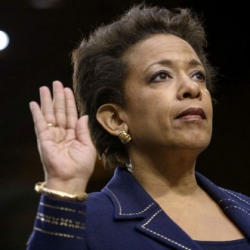Attorney General nominee Loretta Lynch indicated in recent senate committee deliberations that she was unlikely to change Justice Department policies involving online gambling. The current policy at the Department of Justice suggests that the UIGEA applies to online sports betting, but not online casinos or card rooms.
When she was questioned on the subject by Sen. Lindsey Graham, Judge Lynch confirmed that she had not reviewed the landmark 2011 memo which changed the U.S. executive branch’s policies on Internet gambling.
Follow-Up Questions by Senators
After her appearance before the Senate Judiciary Committee on January 28, Loretta Lynch was sent a number of follow-up questions by the senators. Recently, she replied to that series of questions with written statements.
Written Answers by Lynch
In those statements, Loretta Lynch confirmed she was not likely to change the department’s online gambling policies. Lynch’s replies come as a relief to the many state and federal lawmakers who have tried to expand Internet gambling in the past several years. Civil libertarians and online gambling industry executives also have reason to be pleased, though for much different reasons.
Lynch’s statement read, “It is my understanding, however that OLC opinions are rarely considered. Unless in the course of my review I conclude the OLC’s interpretation of the Wire Act is unreasonable, I do not intend to take any action to suspend or revoke the opinion.”
Feinstein and Graham Asked
Both Sen. Graham of South Carolina and Sen. Dianne Feinstein of California asked follow-up questions on the issue. Feinstein, a Democrat who is often on the opposite side of issues from Sen. Lindsey Graham, has said before that a good case could be made for banning all online gambling in the United States.
2011 DoJ Gaming Memo
The landmark memo from the US Justice Department was prepared in September 2011, after the states of Illinois and New York asked for a federal clarification on the UIGEA law. The UIGEA states that any individual or company which facilitates payments associated with Internet gambling associated with the 1961 Wire Act will be breaking US federal laws.
The problem with the wording of the UIGEA is that the Wire Act is ambiguous on what forms of Internet gambling is banned. It’s understandable the Wire Act wouldn’t address online gambling, since the Internet had not been invented in 1961. Instead, the Wire Act was enacted to ban betting over the phone lines.
1961 Wire Act
In 1961, people who gambled over the phone lines were engaging in sports betting. People could call in picks to their bookmakers or “bookies”. Gamblers couldn’t exactly phone in poker bets, casino table game wagers, or slot machine spins, so the Wire Act did not ban casino gambling or card playing over the phone lines. In fact, the Wire Act specifically mentions “sports wagering”.
Because of the explicit mention of sports betting in the Wire Act, the Justice Department changed a 4-year old policy in 2011 by limiting the scope of the UIGEA’s ban. Sheldon Adelson, who once made $38 billion in the brick-and-mortar casino business, grew concerned that online gambling might contribute to the plight of problem gamblers in the United States.
Sheldon Adelson’s Role
Adelson, who donated more money to political causes in the 2012 US Presidential Election than any other American, began to use his money to see online gambling banned across the USA. The national politicians who took up his calls were Sen. Lindsey Graham and Rep. Jason Chaffetz, who introduced twin bills in both houses of the U.S. Congress. Those bills died in committee in 2014, but those congressmen return with more power and influence in 2015. They are equally determined to pass their online gambling ban, just as Adelson is equally determined to see his cause through to the finish.
Much easier than passing a bill through Congress would be to have the head of the Justice Department change their stance on the UIGEA. A return to the policies which prevailed from 2007 until 2011 would circumvent the need for new legislation. That’s why Lindsey Graham had hoped Loretta Lynch would change Eric Holder’s policies, but that won’t be the case.
Graham and Chaffetz Must Perform
The long process of pushing a bill through committee and building a consensus on an anti-gambling ban is thus left to politicians like Graham, Chaffetz, and Feinstein.

